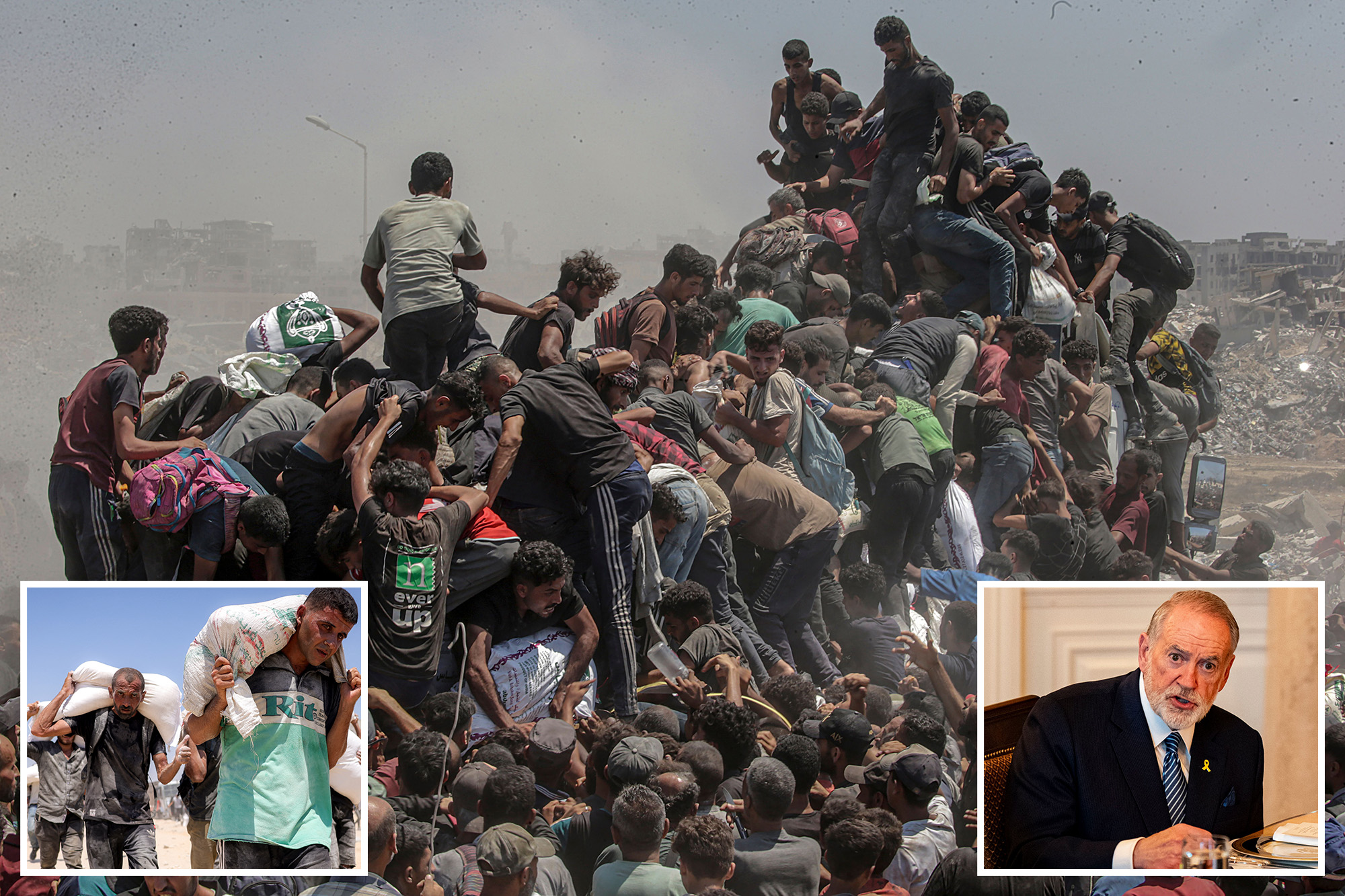U.S. Ambassador to Israel, Mike Huckabee, expressed strong criticism on Sunday against the United Nations, The New York Times, and Hamas, attributing the chaos surrounding humanitarian aid delivery in Gaza to their actions. Huckabee characterized the situation as a “complete balagan,” a term derived from Hebrew meaning chaos, and suggested that the misinformation propagated by these parties has severely impacted ongoing efforts to provide relief.
In a post on X, Huckabee stated, “Are the UN, NY Times, and Hamas all happy now? I’m sure Hamas is. Their lies and propaganda destroyed the cease-fire deal, tried to discredit the safe and functioning GHF effort, emboldened Hamas, and resulted in this complete balagan! Saddest of all, hostage families are left with prolonged grief.” His remarks resonate with a growing sentiment among Israeli officials who assert that accusations directed at Israel and the American Gaza Humanitarian Foundation (GHF) jeopardize aid operations and worsen the humanitarian crisis.
The debate has escalated, particularly in light of social media footage showing U.N.-led aid convoys putting civilians at risk, while American-managed distribution centers reportedly maintained security. Israeli National Security Minister Itamar Ben-Gvir further amplified the criticism, stating, “The ‘humanitarian’ aid equals sustaining the enemy. Prime minister, stop spitting in the face of our fighters!”
Israel Defense Forces (IDF) responded to these accusations with detailed statements and videos aimed at defending their coordination of humanitarian aid. Brig. Gen. Effie Defrin, IDF spokesperson, asserted, “Israel is not blocking humanitarian aid. We are facilitating its entry every single day.” Defrin highlighted that over 250 trucks of aid had crossed into Gaza in the past week, complemented by new airdrops and designated “humanitarian pauses” to facilitate aid distribution in both northern and southern Gaza.
The IDF also noted ongoing cooperation with the United Arab Emirates and Jordan, reporting that 28 airdropped packages were delivered on Sunday alone to counter claims of a deliberate starvation policy in Gaza. According to a report from COGAT, the Israeli military body coordinating humanitarian efforts, over 120 aid trucks were distributed across Gaza on Sunday by the U.N. and various international relief organizations. An additional 180 trucks entered Gaza on the same day and awaited collection, joining hundreds in line for U.N. pickup.
COGAT emphasized the necessity of efficient collection efforts by U.N. agencies and aid organizations to enhance the flow of essential assistance to the vulnerable population in Gaza. In a separate initiative, the GHF reported distributing more than 20,000 food aid boxes at three sites, alongside initial shipments of fresh vegetables. During a visit to the Kerem Shalom crossing, GHF interim executive director John Acree lauded the commitment of aid teams and urged all organizations to prioritize humanitarian needs over political considerations.
Acree remarked, “Help the people of Gaza or make way for those who will,” emphasizing the urgency of addressing the humanitarian crisis. The GHF claims to have distributed nearly 95 million meals to date, highlighting the scale of their operations.
On the political front, Yisrael Beitenu lawmaker Evgeny Sova advocated for a clear message to the United States, Qatar, Egypt, and European nations regarding Israel’s intention to conclude hostilities and transfer responsibility for Gaza. He stated, “The meaning of the move is that Israel will not allow its territory to be used to deliver any aid. Israel will not provide anything to the Strip, and will maintain freedom of military action even after the conflict ends.”
Sova continued, “If they feel responsible for the Gazans, then the pressure must be on Hamas and not on Israel. The IDF is hardly maneuvering in the Strip—it’s carrying out policing missions—while the enemy continues to receive all the aid it needs. This is absurd.”
As discussions continue around the complexities of humanitarian aid in Gaza, the emphasis remains on the urgent need for effective coordination and delivery of assistance to those affected by the ongoing conflict. The situation underscores the intricate relationship between humanitarian efforts and the political landscape in the region.
